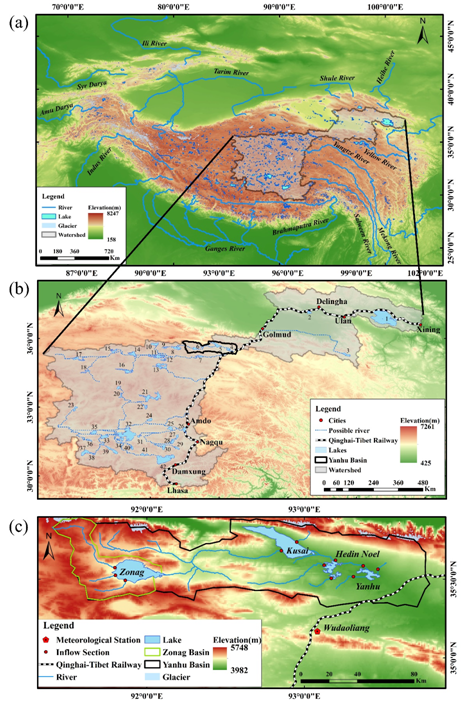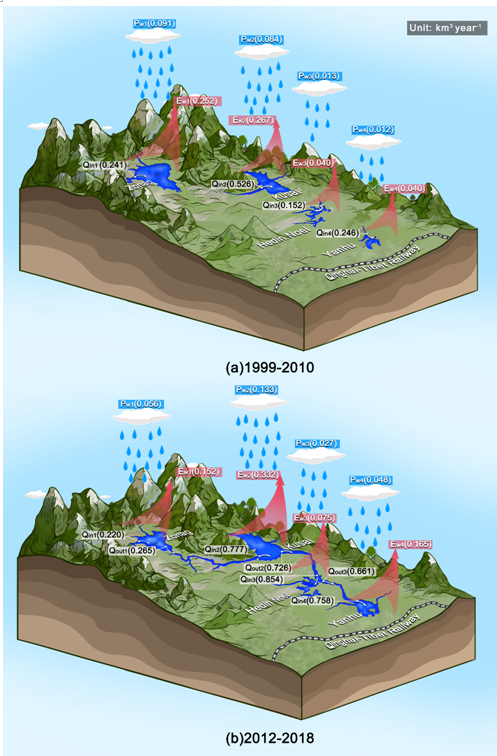PNAS-Nexus: Domino effect of a natural cascade alpine lake system on the Third Pole
DOI: https://doi.org/10.1093/pnasnexus/pgac053
Abstract
Third Pole natural cascade alpine lakes (NCALs) are exceptionally sensitive to climate change, yet the underlying cryosphere-hydrological processes and associated societal impacts are largely unknown. Here, with a state-of-the-art cryosphere-hydrology-lake-dam model, we quantified the notable high-mountain Hoh-Xil NCALs basin (including Lakes Zonag, Kusai, Hedin Noel, and Yanhu, from upstream to downstream) formed by the Lake Zonag outburst in September 2011. We demonstrate that long-term increased precipitation and accelerated ice and snow melting as well as short-term heavy precipitation and earthquake events were responsible for the Lake Zonag outburst; while the permafrost degradation only had a marginal impact on the lake inflows but was crucial to lakeshore stability. The quadrupling of the Lake Yanhu area since 2012 was due to the tripling of inflows (from 0.25 to 0.76 km3/year for 1999 to 2010 and 2012 to 2018, respectively). Prediction of the NCALs changes suggests a high risk of the downstream Qinghai–Tibet Railway, necessitating timely adaptions/mitigations.


